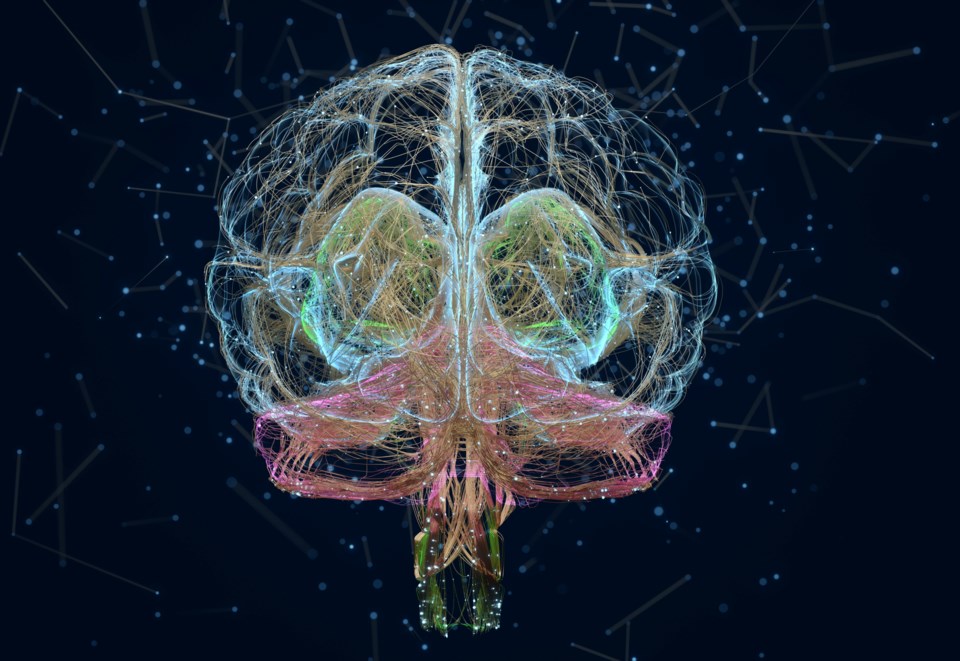Emotional, non-rational, even explosive remarks in public discourse have escalated in recent years. Politicians endure insults during ; scientists receive emails and tweets containing .
What’s going on? This escalation in angry rhetoric is . But are there other influences altering communication styles?
As researchers in the field of nutrition and mental health, and authors of , we recognize that many in our society experience brain hunger, impairing their cognitive function and emotion regulation.
Ultra-processed products
Obviously, we are not deficient in macronutrients: North Americans tend to get sufficient protein, fats (though usually not the best fats) and carbohydrates (usually not the good complex carbs). But we are being cheated of micronutrients (minerals and vitamins), particularly in those whose food choices are dominated by ultra-processed products.
Ultra-processed products include things like soft drinks, packaged snacks, sweetened breakfast cereal and chicken nuggets. They generally contain only trivial amounts of a few micronutrients unless they are fortified, but even then, only a few at higher amounts.
Three published analyses from the 2004 Canadian Community Health Survey and the 2018 U.S. National Health and Nutrition Examination Survey revealed these sobering statistics: in Canada, in 2004, came from ultra-processed products; in the United States consumed and in 2018 were ultra-processed products.
Most of us are aware that dietary intake is a huge issue in physical health because diet quality is associated with chronic health conditions such as . The public is less aware of the impact of nutrition on brain health.
Micronutrients and mental health symptoms
Given that our society’s food choices have moved so strongly toward ultra-processed products, we need to learn about the substantial scientific evidence proving that micronutrient intake influences mental health symptoms, especially irritability, explosive rage and unstable mood.
The scientific evidence base for this statement is now vast, though it is so rarely mentioned in the media that few in the public are familiar with it. A dozen studies from countries , , have shown that people who eat a healthy, whole foods diet have fewer symptoms of depression and anxiety than people who eat a poor diet (mostly ultra-processed products).
Correlational studies cannot prove that nutritional choices are the cause of mental health problems: for that we turn to some compelling prospective longitudinal studies in which people with no apparent mental health problems enter the study, are evaluated for their health and dietary patterns, and are then followed over time. Some of the results have been astonishing.
In a study of about with 10-15 years of followup, the suicide rate in those consuming a whole foods diet was half that of those eating less healthy diets, highlighting an important new direction not yet covered in current suicide prevention programs.
, similarly powerful findings show how children’s dietary patterns, as well as following other health guidelines on exercise and screen time, predicted which children aged 10 to 11 years would be referred for diagnosis of a mental disorder in the subsequent two years. It follows that nutrition education ought to be one of the first lines of treatment for children in this situation.
Irritability and unstable mood often characterize depression, so it’s relevant that multiple independent studies have found that teaching people with depression, who were consuming relatively poor diets, how to change to a whole foods Mediterranean-style diet resulted in significant improvements. A is typically high in whole grains, fruits, vegetables, nuts, legumes, seafood and unsaturated fats such as olive oil.
In , about one-third of the people who changed to a whole foods diet in addition to their regular treatment found their depression to be in remission after 12 weeks.
The remission rate in the control group using regular treatment but no diet changes was fewer than one in 10. The whole foods diet group also reported a cost savings of about 20 per cent in their weekly food budget. This final point helps to dispel the myth that eating a diet of ultra-processed products is a way to save money.
Important evidence that irritability, explosive rage and unstable mood can be resolved with improved micronutrient intake comes from studies evaluating micronutrient supplements to treat . Most public awareness is restricted to the ill-fated search for magic bullets: . That is a common way to think about causality (for problem X, you need medication Y), but that is not how our brains work.
To support brain metabolism, to ensure the production of neurotransmitters such as serotonin and dopamine, as well as breaking down and removing metabolic byproducts. Many studies of multi-nutrient treatments have found improved mood regulation and reduced irritability and explosive rage, including in placebo-controlled randomized trials of children with and .
The evidence is clear: a well-nourished population is better able to withstand stress. Hidden brain hunger is one modifiable factor contributing to emotional outbursts, aggression and even the loss of civility in public discourse.
Bonnie Kaplan receives funding from no organization currently, because she is retired. But during her career she received many grants from private foundations (donor funds) and from provincial funding competitions. Her only current affiliation is as a member of the Scientific Advisory Board of the John W. Brick Foundation.
Julia J Rucklidge receives or has received research funding from Health Research Council (NZ), Waterloo Foundation, Vic Davis Memorial Trust, University of Canterbury Foundation, Canterbury Medical Research Foundation, GAMA Foundation, and the Foundation for Excellence in Mental Health Care.




